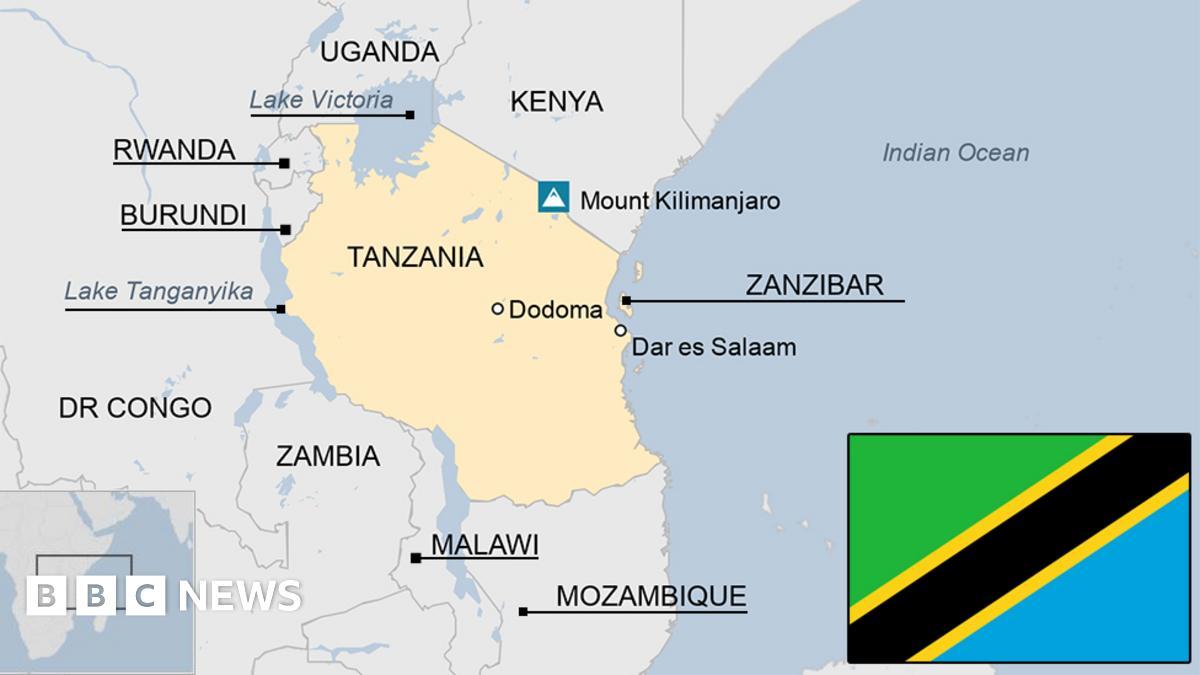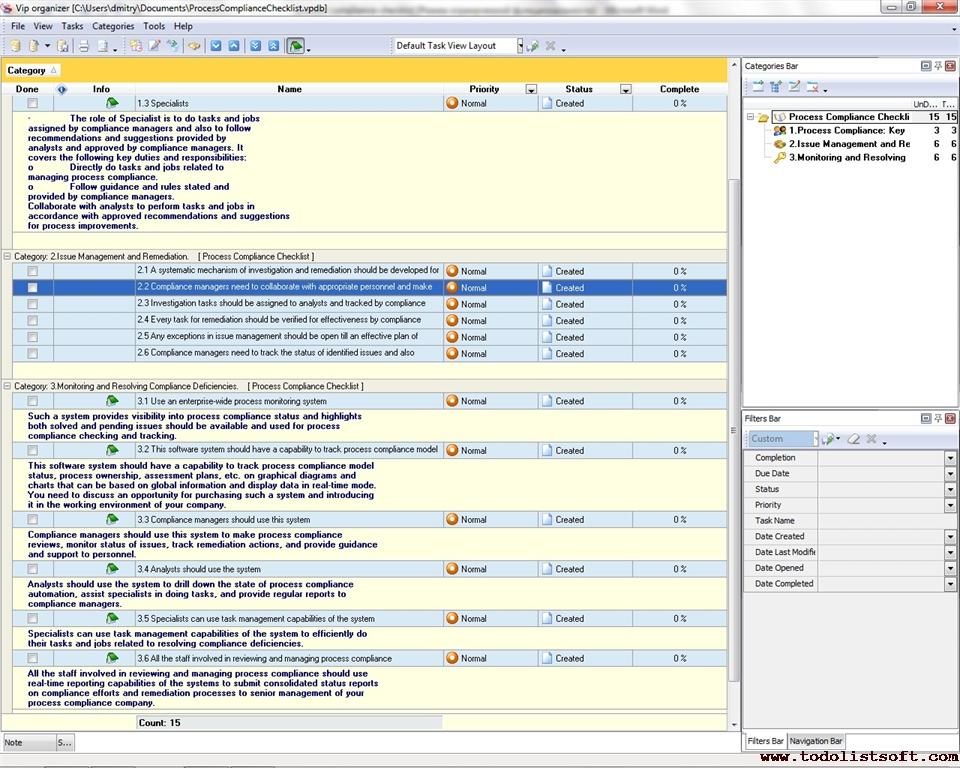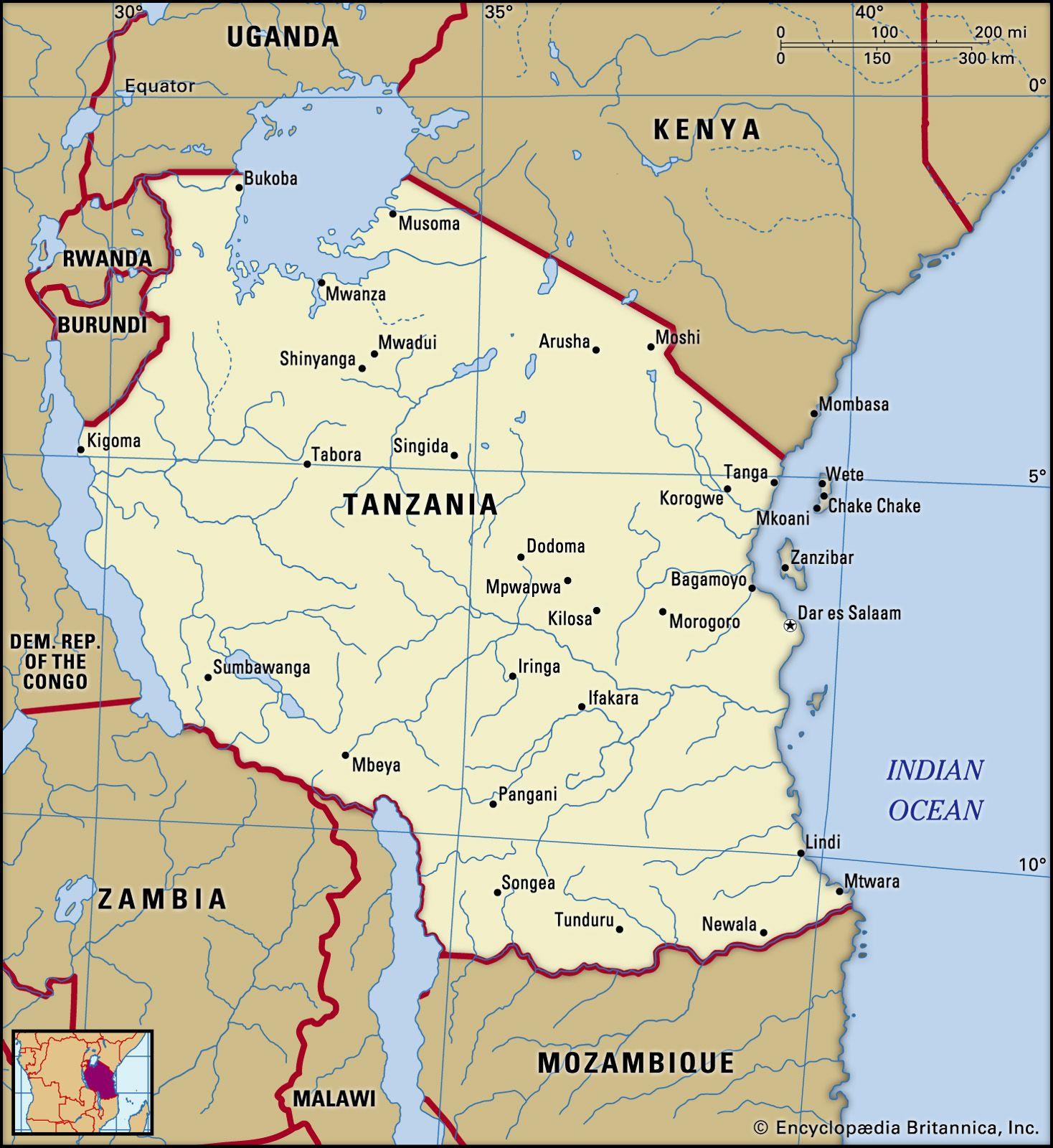Tanzania Extends Foreign Currency Restrictions: A Look at Implications for Business and Trade
Tanzania has recently announced an extension of its foreign currency restrictions,a decision that comes amidst ongoing efforts to stabilize the economy and control inflation within the nation. These measures, originally implemented to curb illegal foreign exchange trading and bolster the local currency, have sparked considerable debate among businesses, investors, and economic analysts. As the Tanzanian government navigates its economic landscape,the implications of these restrictions could resonate beyond its borders,affecting trade dynamics and foreign investment in the region. In this article, we delve into the specifics of the newly extended regulations, the rationale behind them, and what they mean for both local businesses and international stakeholders engaged in the Tanzanian market.
Tanzania’s New Foreign Currency Guidelines: Implications for Businesses

Tanzania’s recent foreign currency guidelines, aiming to manage the flow of foreign exchange more stringently, are set to reshape the landscape for both local and international businesses operating in the country. The new restrictions introduce a heightened level of scrutiny for foreign transactions, specifically targeting key sectors such as tourism, agriculture, and mining. Companies engaging in international trade will need to adapt their strategies to comply wiht these regulations, which include limitations on the amounts of foreign currency that can be withdrawn and transacted. This shift is likely to affect cash flow and operational flexibility, pushing businesses to reconsider their pricing strategies and currency management practices.
As businesses navigate these regulatory changes, they must pay close attention to the following implications:
- Increased Compliance Costs: Organizations may need to invest in new compliance systems or advisory services to ensure adherence to the updated guidelines.
- Currency conversion Risks: with tighter controls, fluctuations in exchange rates may impact costs and revenue, necessitating more robust risk management strategies.
- Investment Deterrents: The restrictions could deter foreign investment, impacting market competition and opportunities for growth.
| Aspect | Implication |
|---|---|
| Compliance | Increased need for financial expertise and resources |
| Cash Flow | Potential delays and constraints in accessing capital |
| Investment Climate | Possible reduced attractiveness for foreign investors |
Understanding the Impact on Foreign Investment in Tanzania

The recent extension of foreign currency restrictions in Tanzania marks a critical juncture for foreign investment within the country. These restrictions aim to regulate the flow of foreign currency, which can potentially lead to increased volatility in the exchange rate and limit investors’ ability to repatriate profits. The implications of this policy are multifaceted and can sway investor sentiment considerably. Key points of concern include:
- Diminished Investor Confidence: Restrictions may lead to uncertainty regarding currency stability and economic policies.
- Operational Hurdles: Businesses might face challenges in conducting transactions, which could impact their overall efficiency.
- Market Accessibility: Foreign businesses might reassess their entry strategies, altering the landscape of competition within Tanzania.
Moreover, while the intention behind such restrictions might potentially be to fortify the local currency, the consequences can create an environment less conducive to foreign capital inflow. Companies could delay or scale back investment plans due to fears over liquidity issues and potential currency devaluation. The table below illustrates potential changes in foreign direct investment (FDI) inflows under the new policy regime:
| Year | Projected FDI Inflows (USD Billions) | Impact Assessment |
|---|---|---|
| 2022 | 2.5 | Stable |
| 2023 | 1.8 | Decline Expected |
| 2024 | 1.2 | Significant Drop |
As trends in FDI begin to signal a reduction, it will be crucial for policymakers to navigate the delicate balance between currency regulation and maintaining an attractive investment climate, ensuring that Tanzania continues to be seen as a viable destination for international business ventures.
navigating the Currency Restrictions: Strategies for Companies

The recent extension of foreign currency restrictions in Tanzania poses significant challenges for companies operating within its borders. To effectively manage these constraints, businesses need to adopt adaptive strategies that align with evolving regulations. Here are some key approaches to consider:
- understand Local Regulations: Regularly review and stay updated on Tanzania’s monetary policies to ensure compliance and avoid penalties.
- Diversify Currency Transactions: explore alternative currencies for transactions, potentially engaging in barter systems or using digital currencies that might circumvent restrictions.
- Strengthen Local Partnerships: Collaborate with local firms that have a better grasp of navigating these restrictions, ensuring a smoother operation.
Additionally, it’s crucial for companies to engage in proactive financial planning. This includes developing contingency plans for unforeseen changes in currency regulations and leveraging international banking networks to facilitate smoother transactions. Below is a summary of potential strategies:
| Strategy | Benefit |
|---|---|
| Regular Regulatory Reviews | Stay compliant and mitigate risks. |
| Local Currency Engagement | Facilitate smoother business transactions. |
| Professional Consultations | Gain insights and advice on best practices. |
Recommendations for Compliance and Adaptation in the New Regulatory Framework

In light of the recent extensions to foreign currency restrictions in Tanzania, businesses operating in or interacting with the country must take proactive measures to ensure compliance with the evolving regulatory landscape.Organizations should undertake a comprehensive review of their current practices to align with the new requirements. Key areas to focus on include:
- Understanding Regulatory Changes: Stay informed about the specific changes in foreign currency policies and how they impact various transactions.
- Internal Audits: Conduct regular internal audits to assess compliance with the new regulations and identify areas requiring adjustment.
- Stakeholder Engagement: Collaborate with legal advisors and local stakeholders to gain insights into best practices for navigating the regulatory environment.
Moreover, businesses should adapt their financial operations to mitigate risks associated with non-compliance. This includes the adoption of a robust framework for currency management, which can definitely help in maintaining liquidity while adhering to regulations. Consider implementing the following strategies:
- Currency Diversification: develop options for dealing in multiple currencies to hedge against restrictions on specific foreign currencies.
- Alternative Payment Solutions: Explore and integrate alternative payment methods that comply with local laws.
- Training and Awareness: Invest in training staff on regulatory compliance and the importance of adapting practices to meet new standards.
the Future of Tanzania’s Foreign Currency Policy: Trends and Predictions

Tanzania’s recent extension of foreign currency restrictions signifies a strategic shift in its monetary policy, aimed at bolstering the national economy while navigating a complex global financial landscape. The government‚Äôs approach appears motivated by several key factors:
- Stabilizing the local currency: Enhancing the strength of the tanzanian shilling against major foreign currencies.
- Controlling inflation: Directly addressing inflationary pressures that could be exacerbated by foreign exchange volatility.
- Encouraging domestic investments: Fostering an environment where local businesses can thrive without the unease of foreign currency challenges.
This holistic approach could stabilize Tanzania’s economic environment, but it poses risks of creating barriers in international trade and investment if not managed prudently.
Looking ahead, several trends may define the landscape of Tanzania’s foreign currency policy. Key predictions include:
- Increased digital currency integration: The potential adoption of cryptocurrencies as alternative investment avenues could reshape traditional currency frameworks.
- Enhanced bilateral trade agreements: Strengthening ties with regional partners to facilitate smoother transactions might become a focal point.
- Emphasis on tourism and exports: Policies may increasingly favor sectors that generate foreign currency through tourism and exportation, prioritizing revenue generation.
As tanzania navigates through these changes, the effectiveness of its currency policy will depend on the balance between control and flexibility, ensuring that it remains appealing to both local and foreign investors.
In Retrospect
Tanzania’s recent extension of foreign currency restrictions marks a significant advancement in the nation‚Äôs economic landscape. By tightening controls on foreign currency transactions, the Tanzanian government aims to stabilize its economy and manage foreign exchange reserves more effectively. However, these measures may also bring challenges, particularly for businesses and investors who rely on a free currency market for operations and growth.
As stakeholders adapt to these changes, the implications on trade, investment, and the broader economic environment will need to be closely monitored. The government’s balancing act between regulation and economic growth will be pivotal in shaping Tanzania’s financial future. For businesses operating in or with Tanzania, understanding the evolving currency landscape will be essential for navigation and strategic planning in the months ahead.As other African nations observe Tanzania’s approach, the outcomes of these restrictions could set a precedent for regional monetary policy and foreign investment strategies. As the situation unfolds, further analysis will be required to assess the long-term impacts on the Tanzanian economy and its position within the broader african market.







